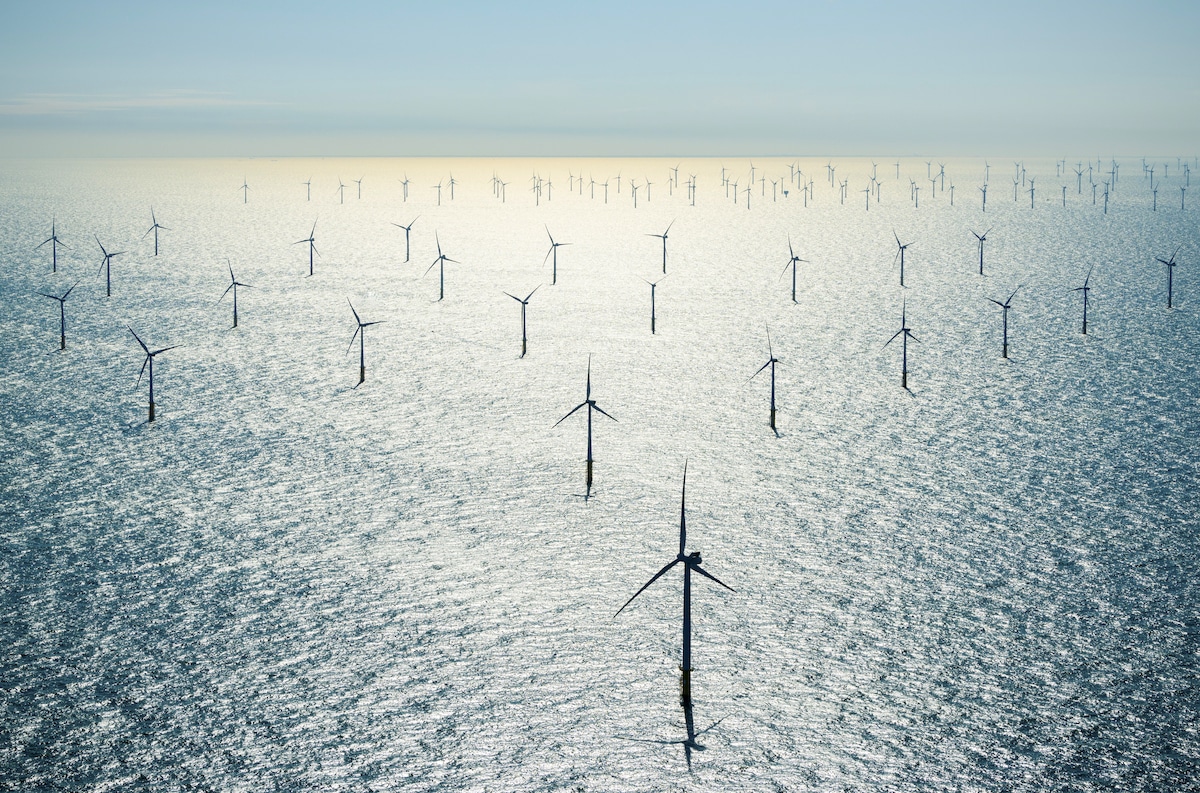Products You May Like
A North Sea offshore wind farm in the Netherlands. Mischa Keijser / Image Source / Getty Images
 Why you can trust us
Why you can trust us
Founded in 2005 as an Ohio-based environmental newspaper, EcoWatch is a digital platform dedicated to publishing quality, science-based content on environmental issues, causes, and solutions.
Several European countries surrounding the North Sea are ready to commit to quadrupling their offshore wind power capacity by 2030 as they set out to turn the region into an enormous renewable energy hub.
At the second North Sea Summit, held in the seaside town of Ostend, Belgium on Monday, France, the United Kingdom, the Netherlands, Luxembourg, Ireland, Belgium, Denmark, Norway and Germany will all commit to developing green energy “islands” connected to renewable power generation sites offshore and to quickly constructing wind farms, reported Reuters. The coalition will also begin offshore renewable hydrogen projects.
“We need offshore wind turbines — and we need a lot of them,” the countries’ leaders wrote in a joint op-ed in Politico. “We need them to reach our climate goals, and to rid ourselves of Russian gas, ensuring a more secure and independent Europe.”
More From EcoWatch
The coalition of nine countries has a goal of having 120 gigawatts (GW) of offshore wind capacity in the North Sea by 2030, and more than twice that by 2050, Reuters reported. According to WindEurope, an association promoting the use of European wind power, the countries currently have 30 GW of offshore wind capacity.
“In response to Russia’s aggression against Ukraine and attempts of energy blackmail against Europe we will accelerate our efforts to reduce fossil fuel consumption as well as dependence on fossil fuel imports,” a draft of the countries’ declaration said, as reported by Reuters.
Germany plans to build 26.4 GW of offshore wind capacity by the end of the decade, the Netherlands 21 GW, Belgium six GW and the UK 50 GW.
The draft document said offshore hydrogen pilot projects using renewable energy will also be launched by Germany, while a group of energy islands will be set up by Denmark, Belgium, the Netherlands and Germany.
“Together, we will combine and coordinate our ambitions for deploying offshore wind and developing an offshore electricity grid, putting Europe on the path toward a green economy fueled by offshore green power plants,” the countries wrote in the op-ed.
The group of European nations also plans to join forces with the purpose of protecting their new offshore endeavors from cyber attacks and other security threats, Reuters reported.
“We will work together within NATO and the European Union to increase the security of offshore and underwater infrastructure, stepping up efforts to react effectively to growing traditional and hybrid threats,” the countries wrote.
The coalition also intends to make sure their new activities in the North Sea don’t harm local communities or the marine environment.
“We cannot wait years for permitting processes while global temperatures rise, and autocratic regimes have the power to turn the lights off in our living rooms and halt production in our industries. Instead, we must work toward rapid deployment of offshore wind, while making every effort to safeguard our healthy and robust marine ecosystems for future generations,” the countries wrote in the op-ed.
Subscribe to get exclusive updates in our daily newsletter!
By signing up, you agree to the Terms of Use and Privacy Policy & to receive electronic communications from EcoWatch Media Group, which may include marketing promotions, advertisements and sponsored content.
